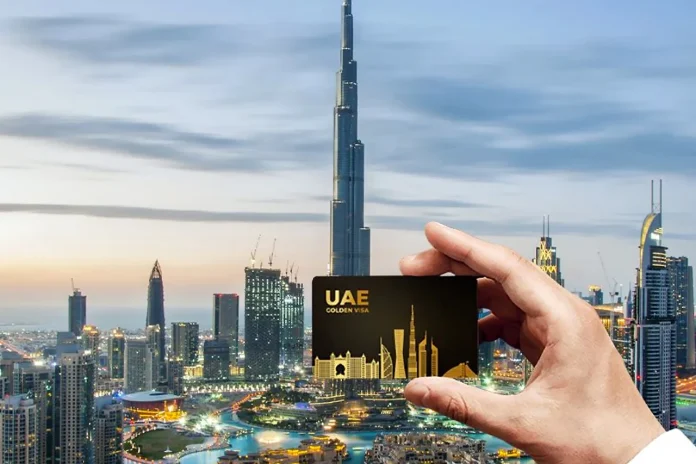Dubai’s property market is experiencing a boom, and there are no signs of it slowing down. In recent months, Dubai has witnessed consistent growth, with prices rising by 2.5% in May alone. This increase marks the highest surge in over two years, indicating the market’s strength. Even areas that were once considered less desirable are now commanding higher values per square foot. Dubai’s property market is set to achieve a new record with ongoing launches of off-plan properties and a projected 100,000 transactions expected this year.
Types of Visas for Property Owners
For individuals who have purchased property in the UAE, there are two visa options available.
- The Golden Visa
- Property Investor Residence Visa.
Golden Visa
The Golden Visa is the primary visa linked to property ownership. It provides a five year validity period. Additionally, it offers the flexibility of unlimited time spent outside the country, allowing property owners to travel without constraints. To be eligible for the Golden Visa, individuals must own property or properties with a minimum equity value of Dh2 million.
Property Investor Residence Visa
This visa requires an investment of over Dh750,000 in property registered under the individual’s name or Dh1 million if registered under the spouse’s name. Similar to a standard visa, it necessitates returning to the country once every 180 days and is renewable every two years.
However, both the Golden Visa and the Property Investor Residence Visa have a requirement that the investment value must be fully paid, and eligibility criteria are not met if the property is mortgaged. It is necessary for the investment amount to be in the form of equity in the property.
The expanding population in Dubai contributes significantly to the robustness of the city’s property market. With ambitious yet realistic plans to double the current population by 2040, there is a growing demand for housing. However, the existing supply of housing falls short of meeting this demand, leading to a rise in off-plan property launches. Projects like Palm Jebel Ali and Expo City are prime examples of this trend. Developers are acutely aware of the opportunities that arise from this population growth and strive to offer competitively priced properties.
However, as the population continues to expand and housing supply becomes more abundant, property prices are expected to stabilize rather than experiencing a sudden crash. This trend showcases the maturing nature of the market, where supply and demand gradually find a balanced equilibrium over time.
In addition to the local market dynamics, the resumption of international travel from China has the potential to exert further influence on Dubai’s property market. As Chinese investors resume their international travel, they may bring in additional investments, further fueling the market’s growth.


